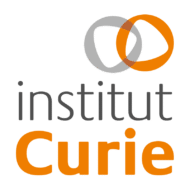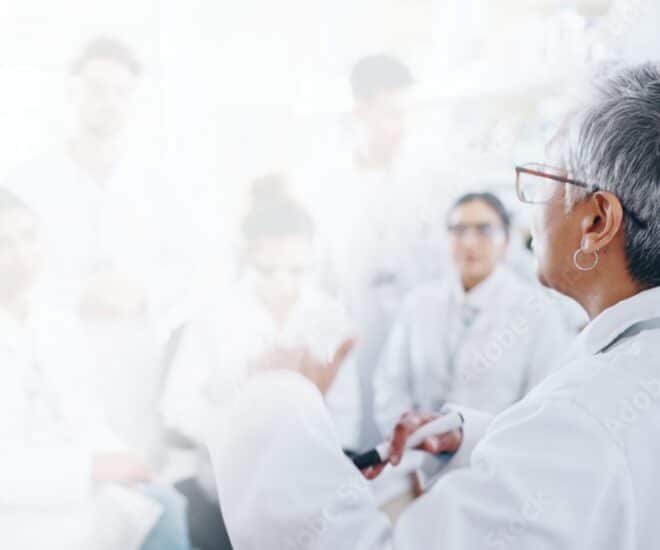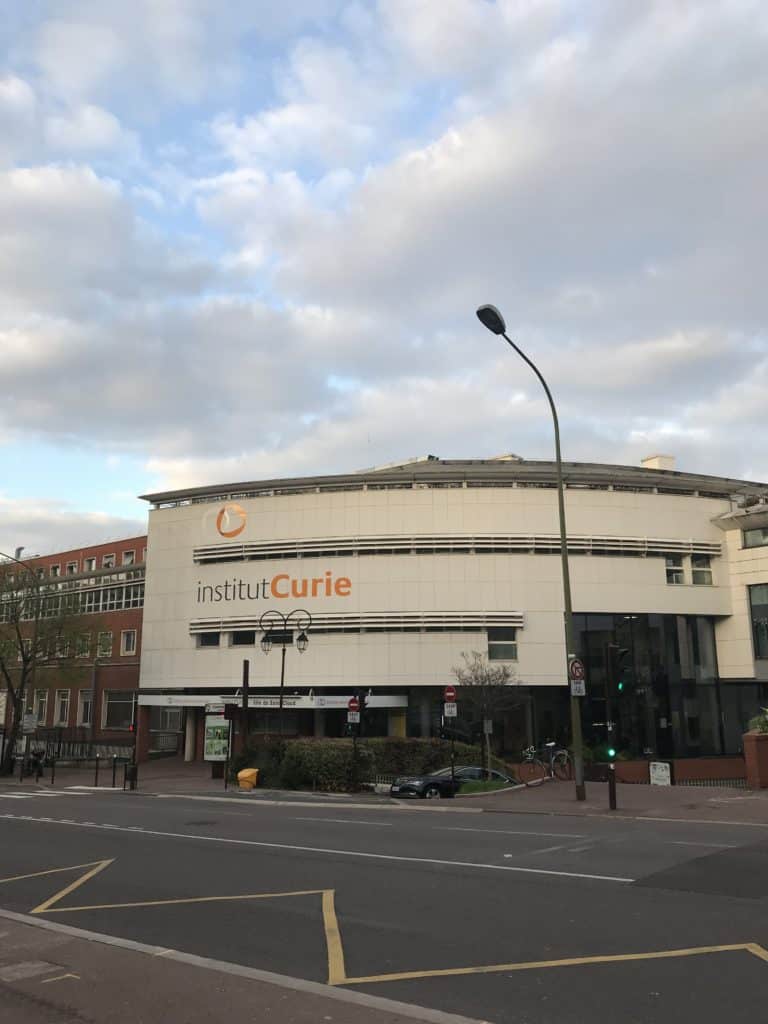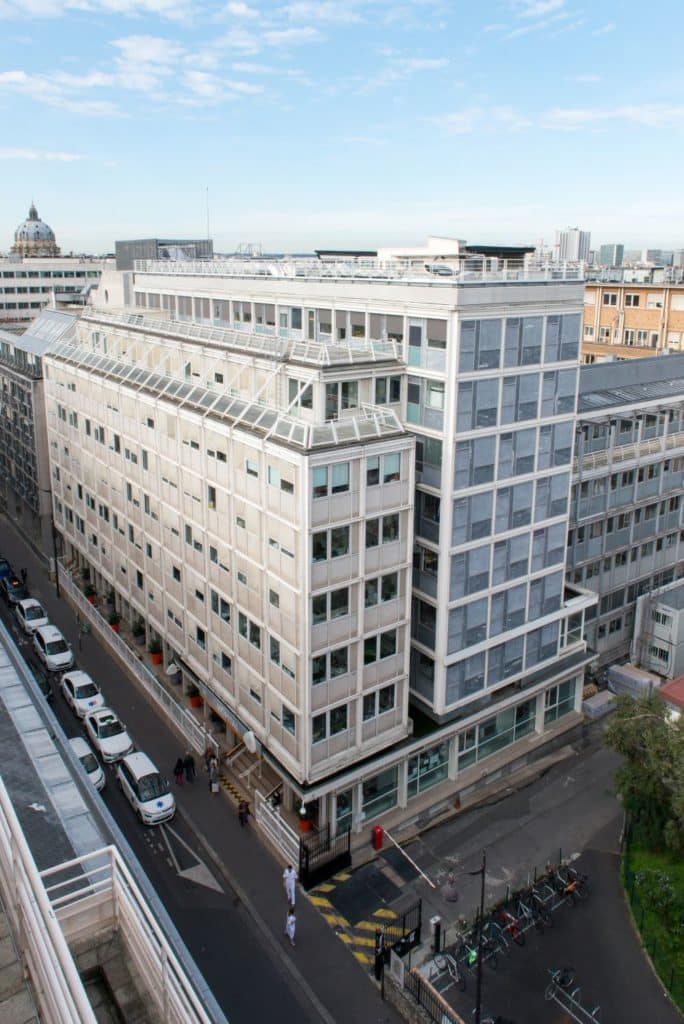Unicancer provides support to expert groups responsible for addressing questions on therapeutic strategies and research.

Institut Curie
75005 Paris
Tél. : 01 44 32 40 00 (Paris)
Tél.: 01 47 11 15 15 (Saint-Cloud)
by HAS - French High Authority of Health
of the patient Overall score
of hospitalized patients
of the patient Overall score
of patients admitted for outpatient surgery
Institut Curie, leading French cancer centre, combines an internationally-renowned research centre and state-of-the-art hospital treating all types of cancer, including the rarest types. Founded in 1909 by Marie Curie, Institut Curie brings together 3,700 researchers, doctors and nursing staff on 3 sites (Paris, Saint-Cloud and Orsay) to carry out 3 missions: treatment, research and teaching. As a foundation recognised as promoting the public interest and authorised to receive donations, Institut Curie can fast-track discoveries thanks to the support of its patrons.
Research
The mission of the Institut Curie’s research centre is to understand the complex workings of living things. The fundamental research developed there makes it possible to implement sophisticated translational research, an incalculable source of innovations rising to the scientific, technological and medical challenges posed by cancer. Its scientific advances range from the normal or cancerous cell to the whole body, opening the way to new knowledge in order to promote the development of new therapeutic areas, essential to the fight against cancer. The research centre houses 86 multidisciplinary teams and provides them with 18 state-of-the-art technology platforms. Thanks to its unique model which ensures the continuum between fundamental, translational and clinical research, it facilitates the transformation of findings into medical applications, so patients can benefit from diagnostic and therapeutic innovations at the earliest possible opportunity.
Treatment
The hospital treats a wide range of cancers: breast cancer, paediatric cancer, respiratory system cancer, gynaecological cancer, gastrointestinal cancer, male genital cancer, blood and bone marrow cancer, head and neck cancer, skin cancer, urinary system cancer, thyroid cancer, central nervous system cancer and eye tumours and sarcoma. It places the best skills and sophisticated techniques at the service of global and continuous management of each individual patient, as part of a permanently multidisciplinary approach, at all stages of the disease and with a constant concern for patient quality-of-life. Birthplace of radiotherapy, pioneer in conservative treatments and the development of supportive care, it continues to innovate in complex therapeutic techniques and pathways (high-precision radiotherapy, proton therapy, photon therapy, precision medicine, imaging, oncoplasty, oncogenetics and more). With a high clinical research capacity, Institut Curie sponsors many clinical trials and includes its patients in them whenever possible.
Preservation and transmission of knowledge
Teaching and training future doctors, nursing staff and researchers are a priority at Institut Curie. Each year more than 500 PhD students, interns, masters students and student nurses come from the 4 corners of the world to finish their studies on courses at Institut Curie. By participating in the dissemination of knowledge, Institut Curie helps improve the treatment of patients worldwide and to further our understanding of living things.
Types of cancer treated
Cancers digestifs
Cancers hématologiques
Cancers de l’appareil génital masculin
Cancers urologiques
Tumeurs du système nerveux central
Cancer du poumon
Autres tumeurs thoraciques
Cancers de la sphère ORL
Cancer de la thyroïde et parathyroïde
Cancer du sein
Cancers gynécologiques
Tumeurs cutanées
Cancers oculaires
Cancers pédiatriques, des adolescents et jeunes adultes
Tumeurs rares
Sarcomes
Treatments
Chirurgie
Radiothérapie
Curiethérapie
Protonthérapie
Chimiothérapie
Immunothérapie
Thérapies ciblées
Hormonothérapie
Radiologie interventionnelle
Immunothérapie
Car-T cells
Soins de support
Training courses
- DIU (Diplômes Inter Universitaires) :
Oncogénétique (Université de Paris, Université Paris 13)
Médecine Moléculaire en Cancérologie (Université de Paris, Université Paris Sud)
Diagnostic et Prise en Charge des Sarcomes et Tumeurs Mésenchymateuses (Université de Paris, Université de Marseille, Université de Bordeaux, Université de Lyon, Université de Strasbourg, Université de Lille) ;
Européen d’Oncologie Gynécologique et Mammaire (Université de Paris, Université de Nantes et Université de Lyon)
DU (Diplôme Universitaire) : - Pathologie Mammaire (Université Versailles Saint Quentin – Paris Saclay)
Oncologie Oculaire (Université de Paris)
Diplôme d’études spécialisées complémentaires (DESC) de cancérologie
Cours internationaux et accueil de médecins internationaux
Pour toutes informations utiles sur les formations et l’enseignement délivrés par le Centre de recherche






